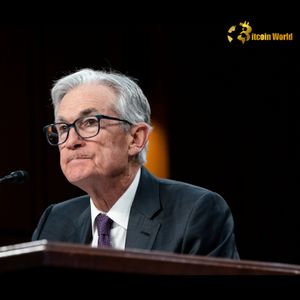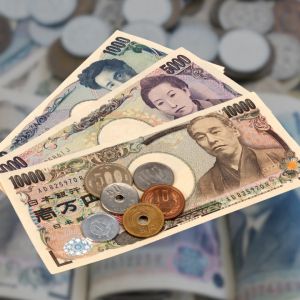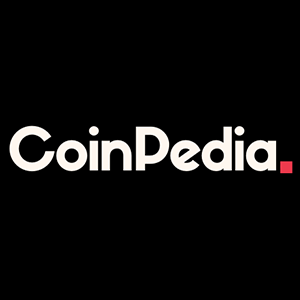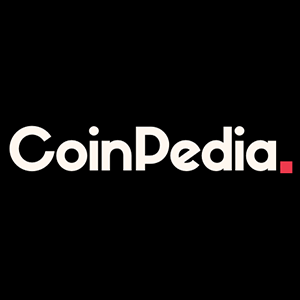Jerome Powell Issues Crucial Warning on Tariffs and Inflation
5 min read
BitcoinWorld Jerome Powell Issues Crucial Warning on Tariffs and Inflation Federal Reserve Chairman Jerome Powell recently delivered a significant message that has implications far beyond traditional economic circles, potentially touching the crypto market . His remarks centered on the potential effects of tariff policies, specifically how they might influence both economic activity and, critically, tariffs inflation . What Did Jerome Powell Say About Tariffs and Inflation? Chairman Powell stated that the outcome of tariff policies isn’t uniform; it depends heavily on the specifics and the level of tariffs imposed. However, he issued a clear caution: significant tariff hikes, particularly those implemented this year, could have a twofold negative effect: Weighing on Economic Activity: Higher tariffs can increase costs for businesses, disrupt supply chains, and potentially reduce consumer spending as imported goods become more expensive. This can slow down overall economic growth. Potentially Boosting Inflation: Tariffs act like taxes on imports. When the cost of imported goods rises, businesses often pass those costs onto consumers, leading to higher prices across various sectors. This is a form of ‘cost-push’ inflation. This isn’t the typical inflation the Fed usually battles, which is often driven by strong consumer demand. Tariff-induced inflation is supply-side driven, making it a tricky challenge for monetary policy. How Do Tariffs Impact Economic Activity? Understanding the Economic Impact Let’s break down the mechanisms behind the potential negative economic impact of tariffs: Increased Costs for Businesses: Companies relying on imported raw materials or components face higher input costs. This can squeeze profit margins or force them to raise prices. Supply Chain Disruptions: Tariffs can complicate international trade relationships, forcing companies to find new suppliers or relocate production, which is costly and time-consuming. Reduced Consumer Spending: As the cost of imported goods (from cars to electronics to clothing) increases, consumers have less disposable income for other purchases. Retaliation: Countries hit by tariffs often retaliate with their own tariffs on the first country’s exports, hurting domestic industries that rely on international markets. Investment Uncertainty: The unpredictability of tariff policy can make businesses hesitant to invest in new projects, further slowing growth. All these factors contribute to a potential slowdown in the economy, impacting job growth and overall prosperity. Why Does This Matter for Fed Policy and Interest Rates? The Federal Reserve’s primary goals are maximum employment and stable prices (controlling inflation). Fed policy , particularly decisions around Fed interest rates , is the main tool used to achieve this. Normally, if inflation is high due to strong demand, the Fed raises interest rates to cool the economy. If the economy is slowing, the Fed might lower rates to stimulate activity. However, tariffs present a dilemma. They can cause both inflation *and* a slowdown in economic activity simultaneously. If the Fed raises rates to combat tariff-induced inflation, they risk further harming an already weakening economy. If they keep rates low to support the economy, they might allow inflation to accelerate. This makes navigating monetary policy significantly more complex. What Could This Mean for the Crypto Market? Analyzing the Crypto Market Reaction The connection between macroeconomic factors like inflation, interest rates, and the crypto market is a subject of ongoing debate and observation. Here’s how Powell’s comments and the potential fallout could influence crypto: Inflation Hedge Narrative: If tariffs significantly boost inflation, some investors might turn to assets perceived as inflation hedges, like Bitcoin. This narrative gained traction during previous periods of high inflation. Risk-On/Risk-Off Sentiment: Cryptocurrencies are often viewed as riskier assets. If tariffs lead to economic uncertainty and a slowdown, investors might move away from riskier investments (risk-off), potentially putting downward pressure on crypto prices. Conversely, if the inflation aspect dominates and conventional investments struggle, crypto might be seen as an alternative (risk-on in a different sense). Fed Policy Uncertainty: Any confusion or unpredictable moves from the Fed regarding interest rates can increase market volatility across the board, including crypto. Impact on Disposable Income: If tariffs reduce consumer purchasing power and harm the broader economy, it could potentially reduce the capital available for speculative investments like crypto. There isn’t a single guaranteed outcome. The crypto market reaction will likely depend on which factor dominates: the fear of inflation or the fear of economic slowdown. Navigating Macro Headwinds: Actionable Insights for Crypto Enthusiasts Given the potential complexities introduced by factors like tariffs and their impact on tariffs inflation and the broader economy, what should individuals interested in the crypto market consider? Stay Informed: Pay attention not just to crypto-specific news but also to major macroeconomic announcements, including statements from the Federal Reserve and data on inflation and economic growth. Understand the Links: Educate yourself on how traditional finance and economic policies can influence the crypto space. The world is interconnected. Consider Your Strategy: Are you investing in crypto as a long-term store of value, a speculative asset, or something else? Macro factors might influence the performance of different types of crypto assets differently. Think Long-Term: While short-term volatility can be influenced by macro news, many crypto investors focus on the long-term potential of the underlying technology and networks. Jerome Powell’s comments serve as a reminder that external economic forces play a significant role in the financial landscape, and understanding them is key to navigating any market, including crypto. The Bigger Picture: Global Trade and Inflation Trends The discussion around tariffs isn’t isolated to the U.S. economy. Trade policies have global repercussions. Changes in trade dynamics can shift manufacturing, alter supply chains worldwide, and impact inflation rates in multiple countries. As central banks globally grapple with post-pandemic inflation and potential economic slowdowns, trade policy adds another layer of complexity to their decisions. This interconnectedness means that developments like those highlighted by Jerome Powell can have ripple effects that eventually reach every corner of the global financial system, including digital asset markets. Summary: Jerome Powell’s warning about tariffs potentially boosting inflation and weighing on economic activity highlights a significant challenge for Fed policy . This complex macroeconomic environment, where inflation risks coexist with potential economic slowdowns, creates uncertainty that can influence the crypto market in various ways. Understanding these links is crucial for anyone navigating the current financial landscape. To learn more about the latest crypto market trends, explore our article on key developments shaping crypto market price action. This post Jerome Powell Issues Crucial Warning on Tariffs and Inflation first appeared on BitcoinWorld and is written by Editorial Team

Source: Bitcoin World



